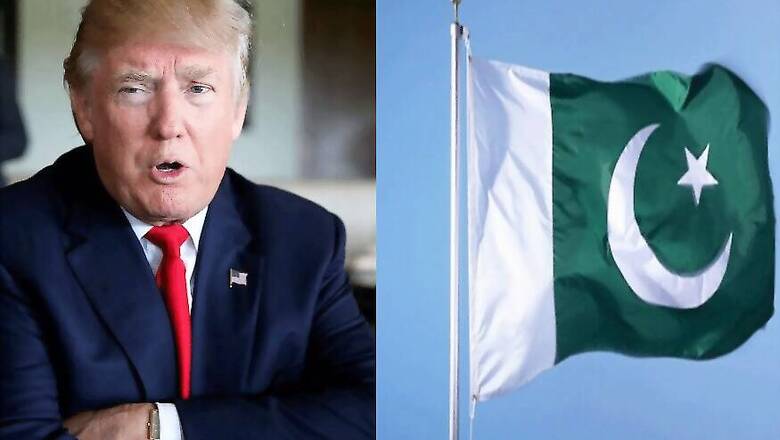
views
New Delhi: Designating Pakistan as a state sponsor of terrorism is unwise in the first year of a new administration, but should be kept as an option for the longer term, experts from over a dozen influential think-tanks in the US have advised the Donald Trump administration.
The report submitted to the White House asks that Washington recognise that its efforts over several decades to strengthen Pakistan militarily have only “encouraged those elements in Pakistan that hope someday to wrest Kashmir from India through force.”
The report argues that US engagement with Pakistan must be based on a realistic appraisal of the country’s policies, aspirations, and worldview. “The US must stop chasing the mirage of securing change in Pakistan’s strategic direction by giving it additional aid or military equipment. It must be acknowledged that Pakistan is unlikely to change its current policies through inducements alone,” the report adds.
Titled ‘A New U.S. Approach to Pakistan: Enforcing Aid Conditions without Cutting Ties’, the report has been authored by Husain Haqqani, Director for South and Central Asia, and Lisa Curtis, Senior Research Fellow, Heritage Foundation, along with several others.
“The US must refuse to get involved in the India-Pakistan dispute over Kashmir and instead focus on diplomatically isolating Pakistan over its continued support to terrorist groups that attack India and have connections to international terrorism.
The US should encourage both India and Pakistan to exercise restraint and pursue measures normalizing their relationship,” says the report.
The authors recommend avoiding a complete breakdown in U.S.-Pakistan relations. “The U.S. cannot achieve its counterterrorism objectives in Pakistan so long as Islamabad tolerates those terrorist groups operating in Afghanistan and India. Yet it also is not in the U.S. interest to make an enemy out of Pakistan without fresh efforts to change Pakistani behavior,” they say.
The report says that with India-Pakistan tensions on the rise, the Trump administration must formulate a new policy approach toward Pakistan quickly. “Another major terrorist attack in India conducted by Pakistan-based militants could precipitate a wider conflict that has the potential of going nuclear,” it warns.
The US should stop its habit of trying to balance its policies towards India and Pakistan and Washington should not be constrained by fear that other countries will displace the US role in Pakistan, the report argues.
“For too long, the U.S. has given Pakistan a pass on its support for some terrorist groups based in Pakistan, including those used against India. The U.S. squandered a valuable opportunity in the aftermath of 9/11 and the 2001-2002 India-Pakistani military crisis to alter the Pakistani military’s fundamental calculations on the use of terrorism for foreign policy ends. Pakistan has long insisted that it is unable to meet U.S. counterterrorism demands in any but the long term.
Pakistani officials have privately argued that local terrorist groups such as Jaish-e-Muhammad or Lashkar-e-Taiba are too powerful and pervasive for the military establishment to challenge now. The U.S. should no longer settle for Pakistan’s excuses for delaying a full-throttle crackdown on these terrorist groups and should instead hold Pakistan accountable for the activities of all terrorist groups on its soil,” it says.
















Comments
0 comment